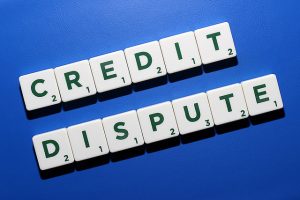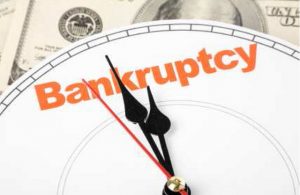We all know the story. One day you’re happily milling along without a financial care in the world. The next minute, you apply for a loan, only to get rejected.
There are all sorts of reasons you could be rejected for a loan. Here are some of the things that’ll destroy your credit score fast and what you can do about them.
Make Late Payments Often
Most credit score companies have a formula through which they score your credit-worthiness for lenders. In most scoring methods, your personal payment history comprises over 35 percent of the whole score. Making payments late, therefore, can have a dramatic effect, causing your credit rating to fall very quickly.

When you think about it, this makes a lot of sense. Lenders not only want you to pay back the money you’ve been lent, but they also want it to be paid back on time. In most credit scoring systems, late payments are divided into three categories. Payments which are 30 days late, 60 days late and more than 90 days late. The more late payments you have in these categories, the more your credit score will drop like a stone.
Fail To Pay Medical Bills And Parking Tickets
When assessing your credit score, credit scoring companies will take into account all the information that they have available on you. This includes whether or not you paid a parking fine or your medical bills.
The part about medical bills makes a lot of sense. If you don’t pay your medical bills, there’s a good chance that you won’t be able to pay back loans that you borrow from a lender. But the part about a parking ticket is a little less obvious. Why would that impact your credit score? Well, firstly, not paying a parking ticket might indicate financial difficulties at home. But the main reason is that the people who don’t pay their parking tickets are statistically the people who tend not to pay back the loans that they get.
Cancel Your Old Credit History
Canceling your old lines of credit is a big no-no if you want your credit score to remain high. Currently, 15 percent of your score is determined by the length of your relationship with your credit suppliers.
If you visit this site, you’ll read all about people who made similar mistakes. They thought that canceling their old credit cards was a good thing, only to find out that credit scoring agencies had hammered their scores. Don’t forget, you’re entitled to a free credit report every year.
File For Bankruptcy

If you really want to prove to lenders, you can’t be trusted with other people#s money, file for bankruptcy. Usually, under bankruptcy laws, you can’t borrow anyway. But even if you wanted to, you’d find out that your credit score was shot. Many people opt for bankruptcy when their debts become unpayable. But the costs of bankruptcy are high. They mean that taking out credit in the future is almost impossible. People who file for bankruptcy have problems taking out mortgages, even decades later when they’ve got a good job and income. Their bankruptcy is a permanent blot on their record that can’t easily be undone.
Max Out Your Lines Of Credit
Improving your credit score is a delicate balancing act. On the one hand, you don’t want to take out too little money, as this will leave lender wondering whether you’re able to service larger amounts. On the other hand, you don’t want to take out too much debt, since this will indicate that you’re taking on too much debt for your income.
The amount of debt you currently have outstanding comprises more than 30 percent of your credit score. People with high credit scores tend to have only small amounts of debt to their name. But the closer you get to your credit limit, the less that lenders will be willing to lend to you.
When you think about it, this makes sense. As the amount that you borrow goes up, your credit-worthiness goes down. Because you have a limited income, the higher your initial debt, the less debt that you can afford to take on. It’s only right that as you reach your credit limit, your credit score should fall.
A good way, therefore, to improve your credit score is to find a way to reduce the total amount of debt you have outstanding. You could take on a side hustle, reduce the amount you’re spending on junk food and cancel your cable subscription.




